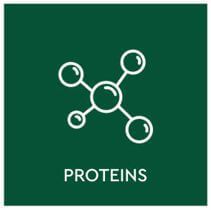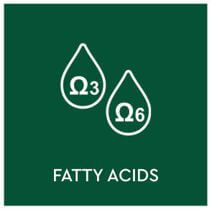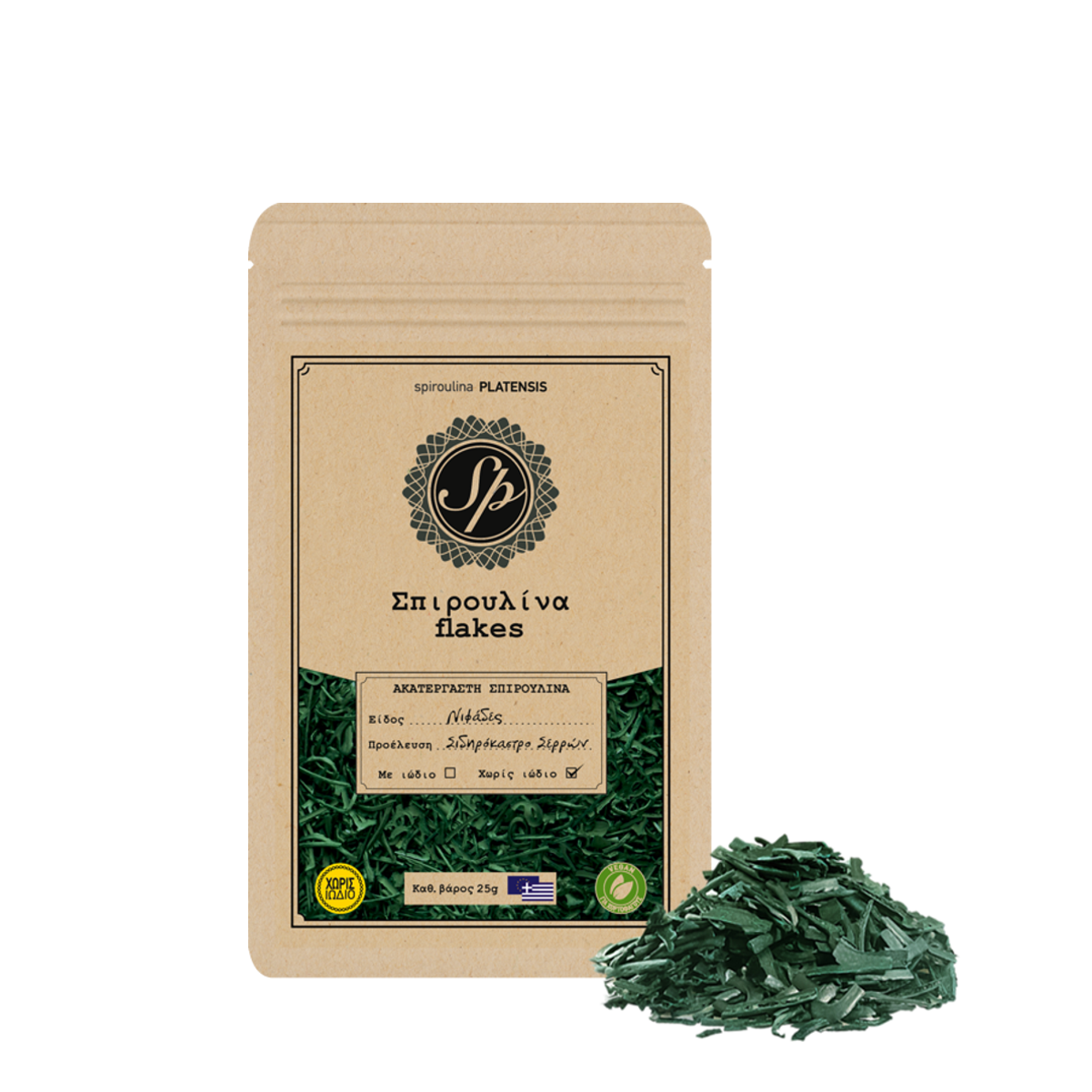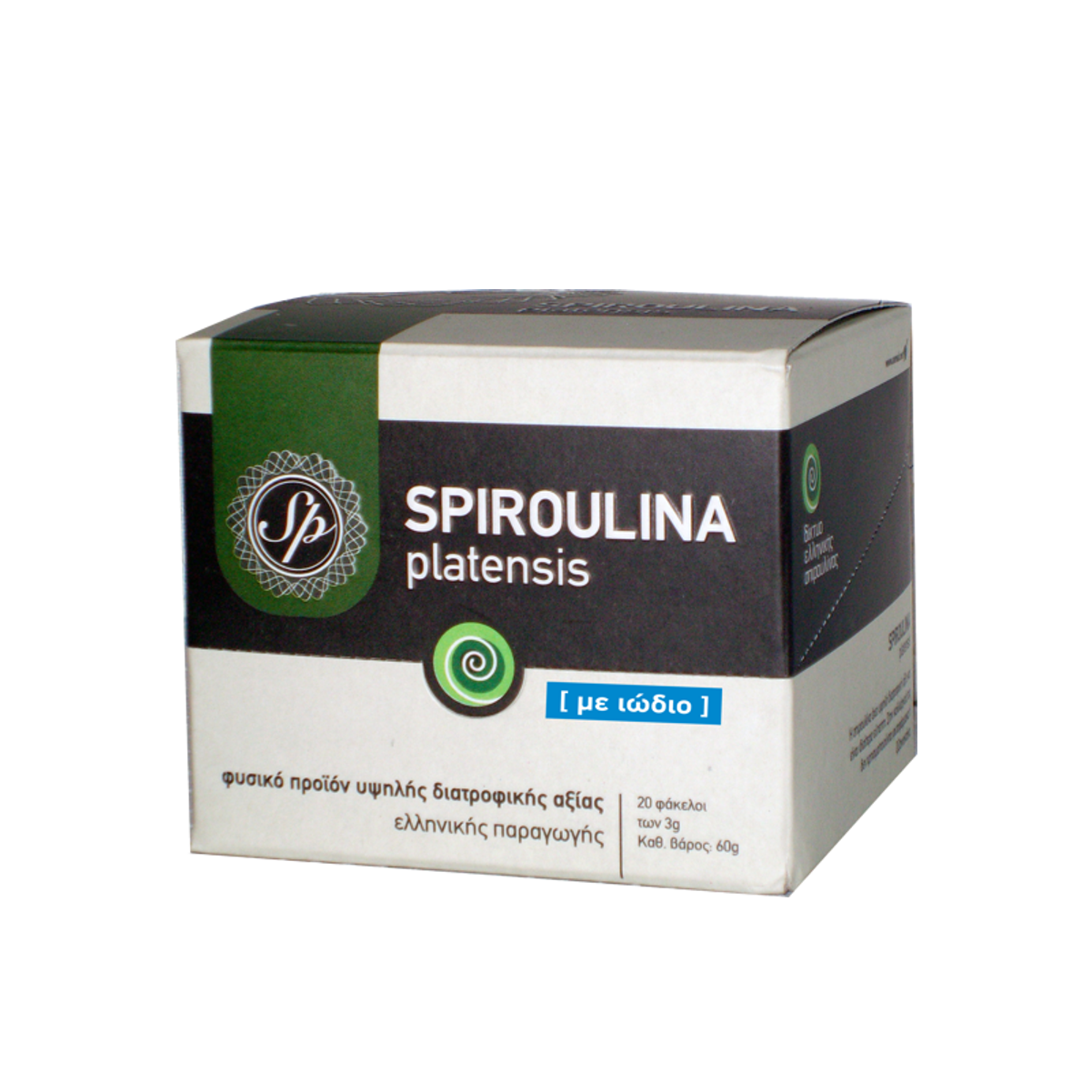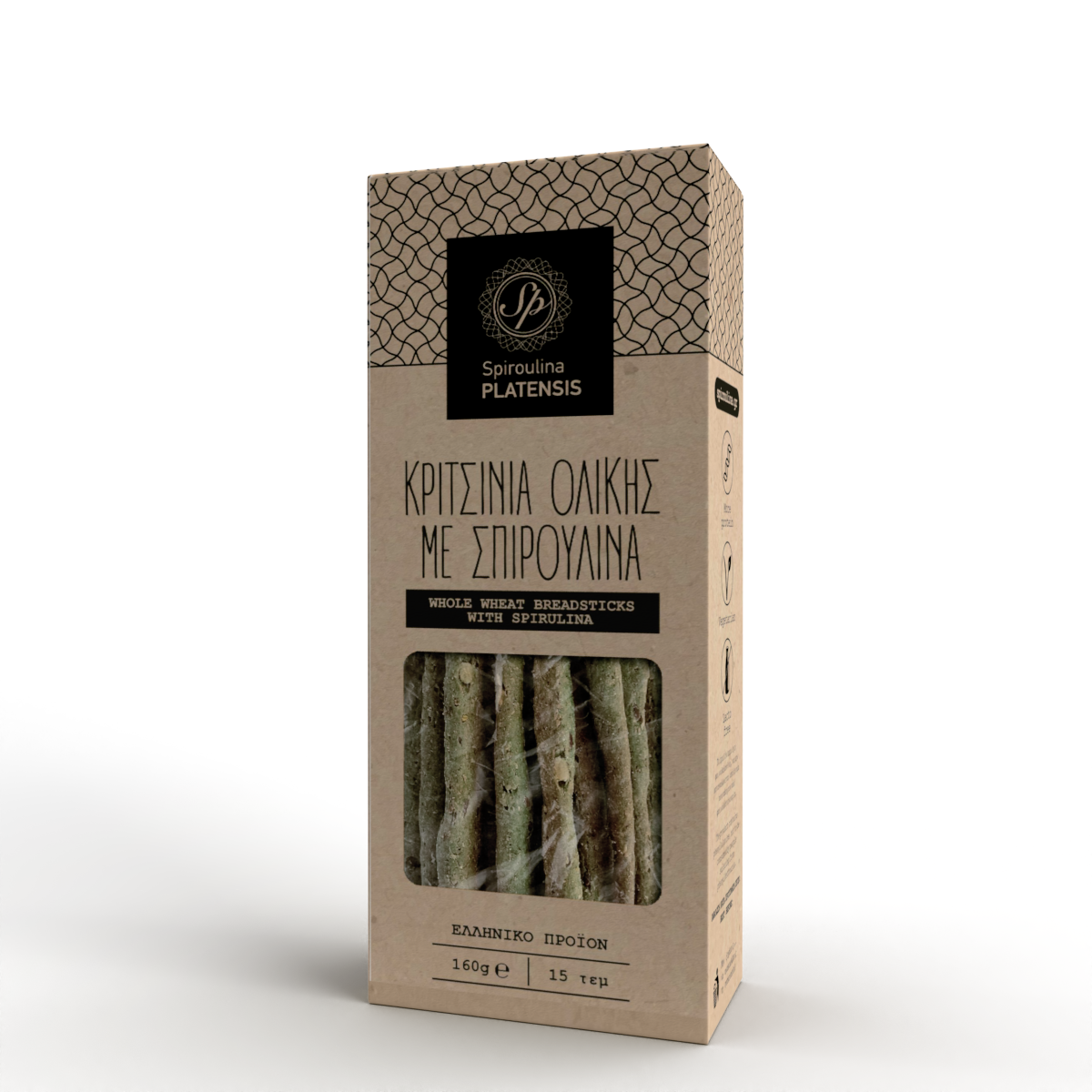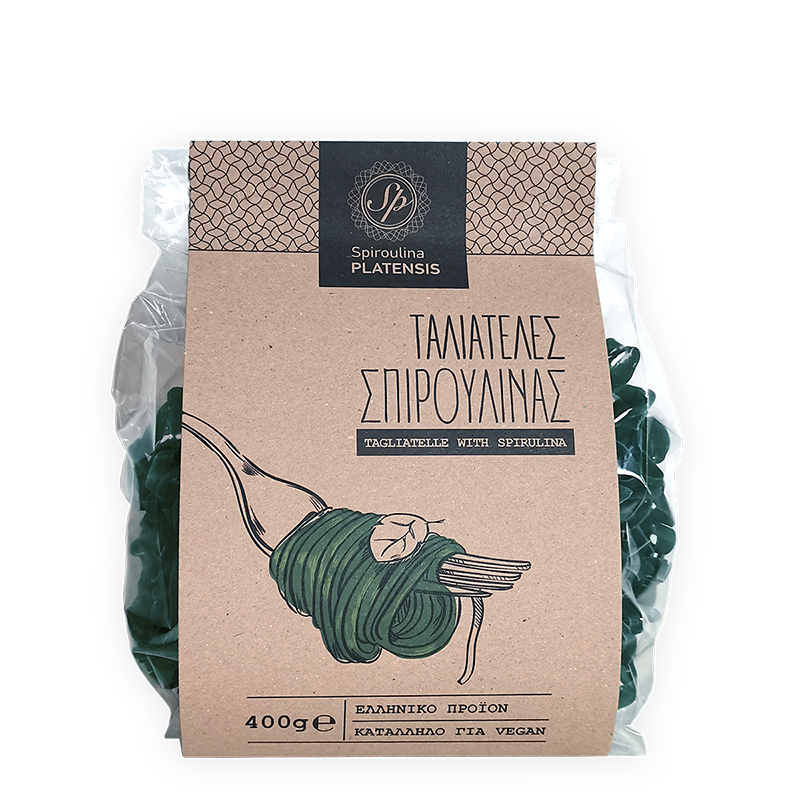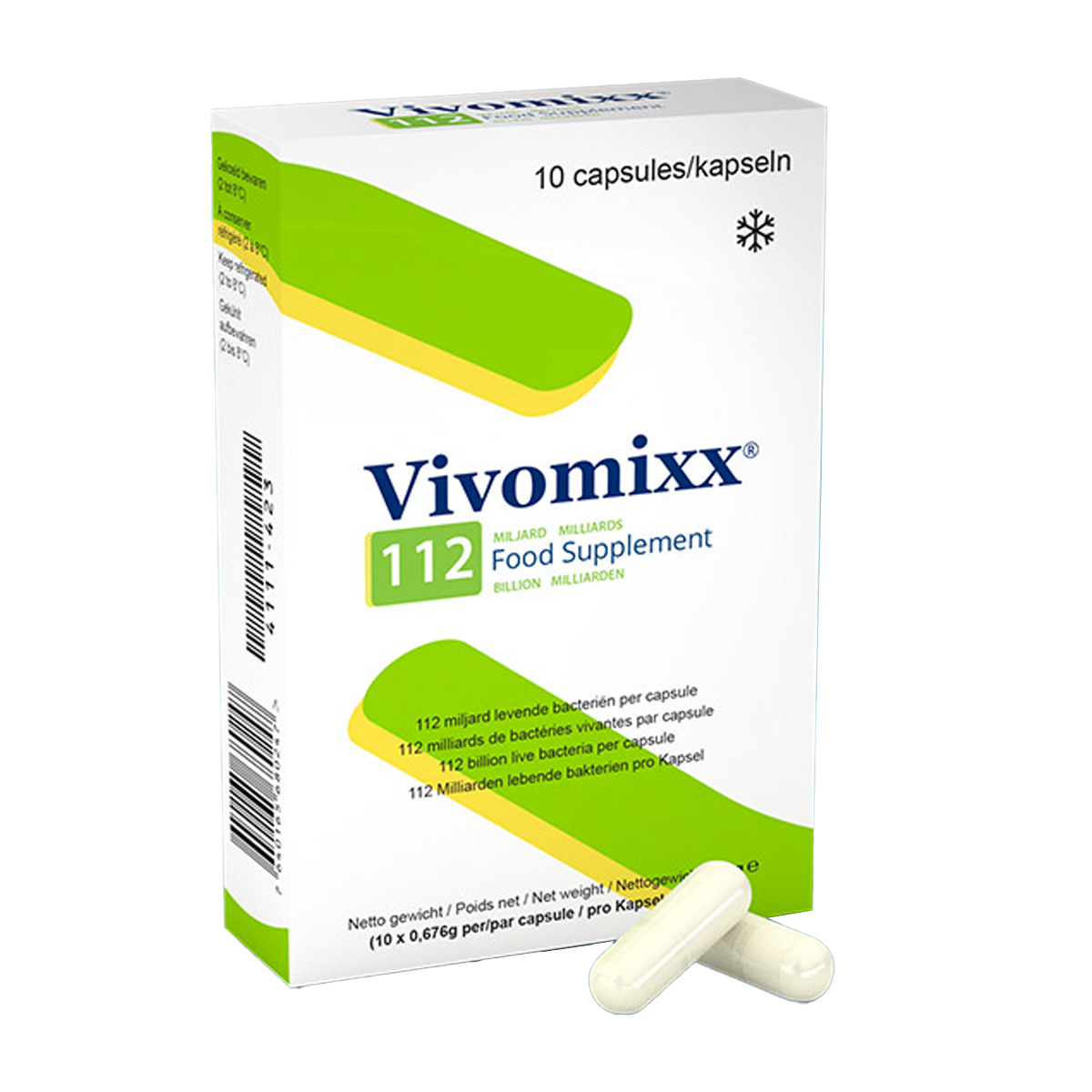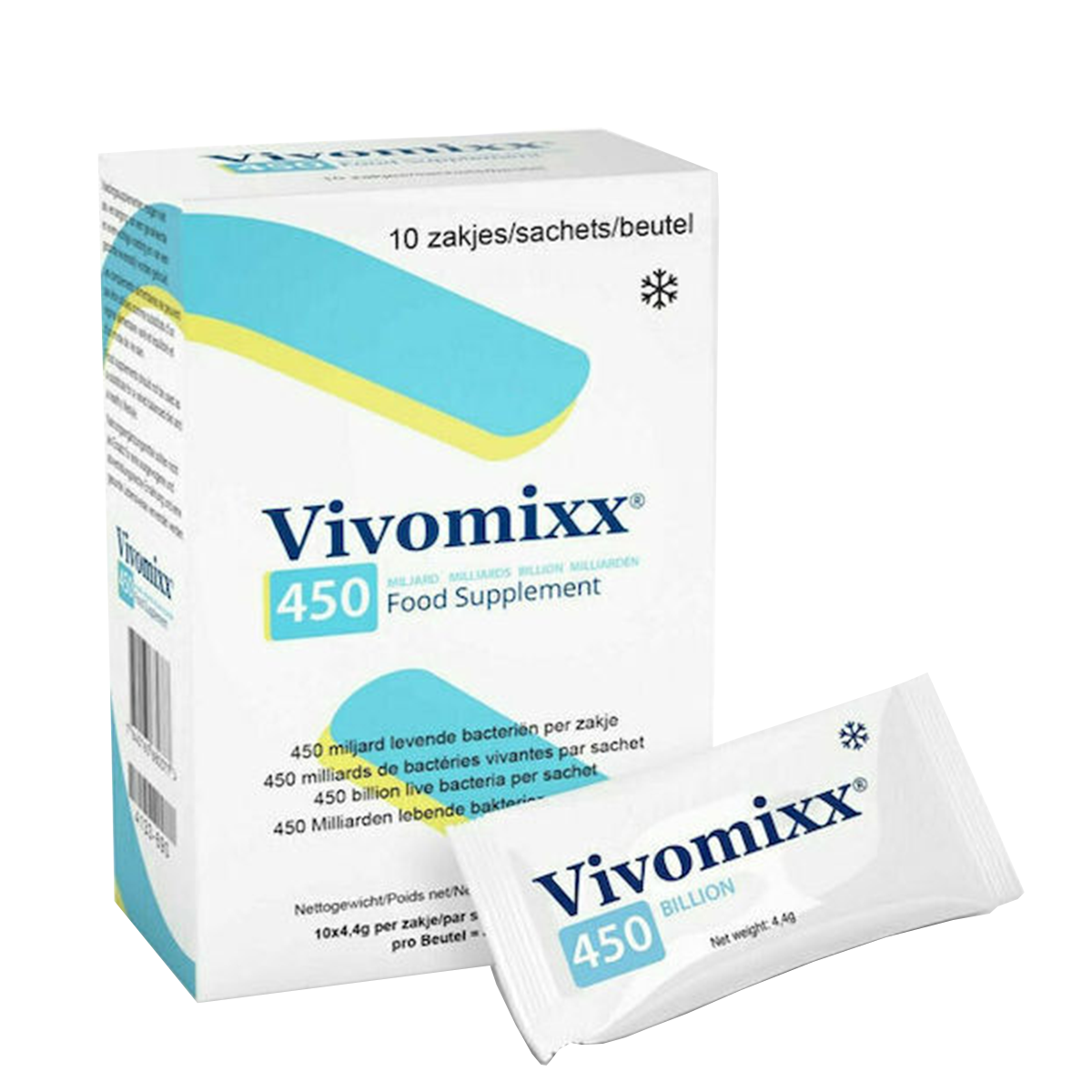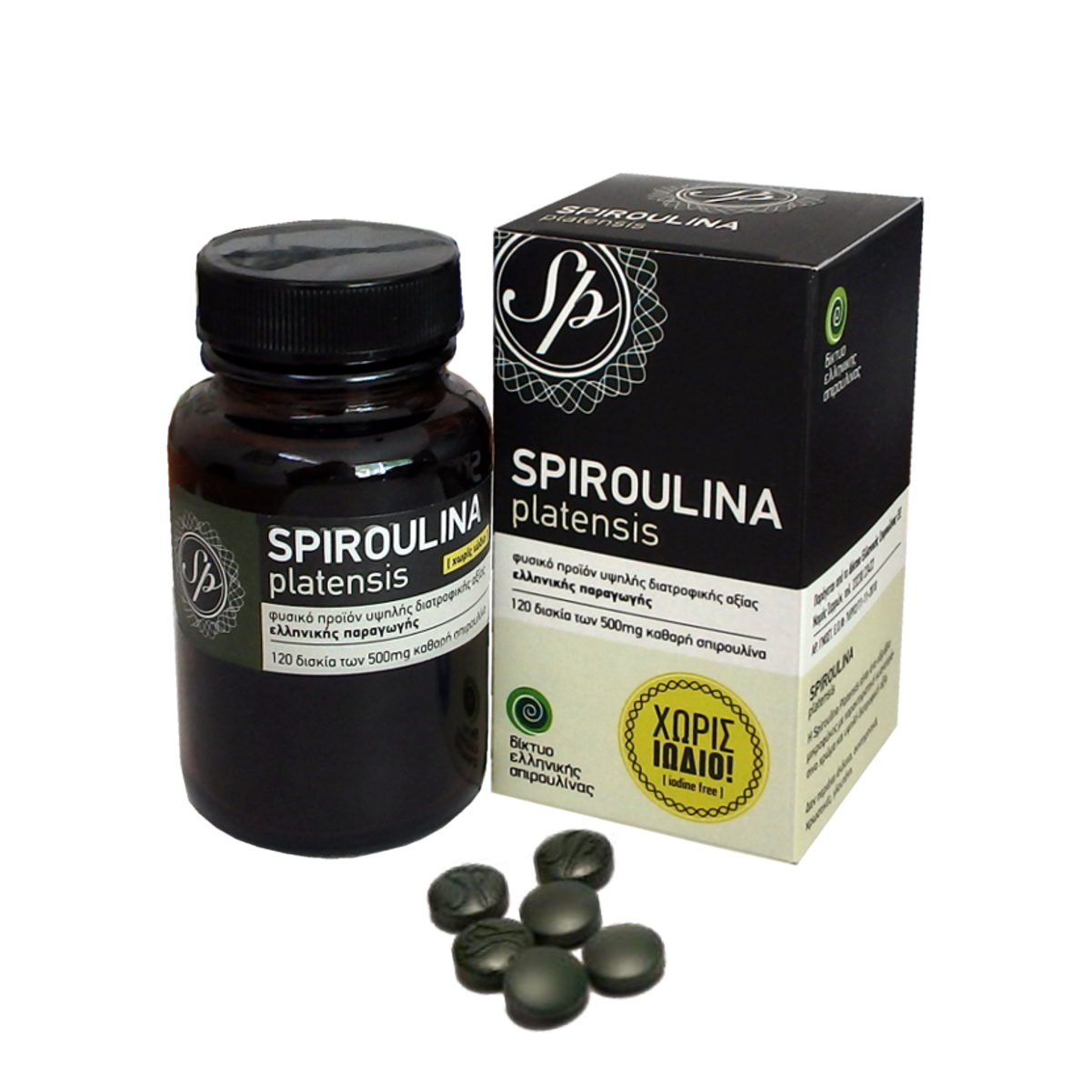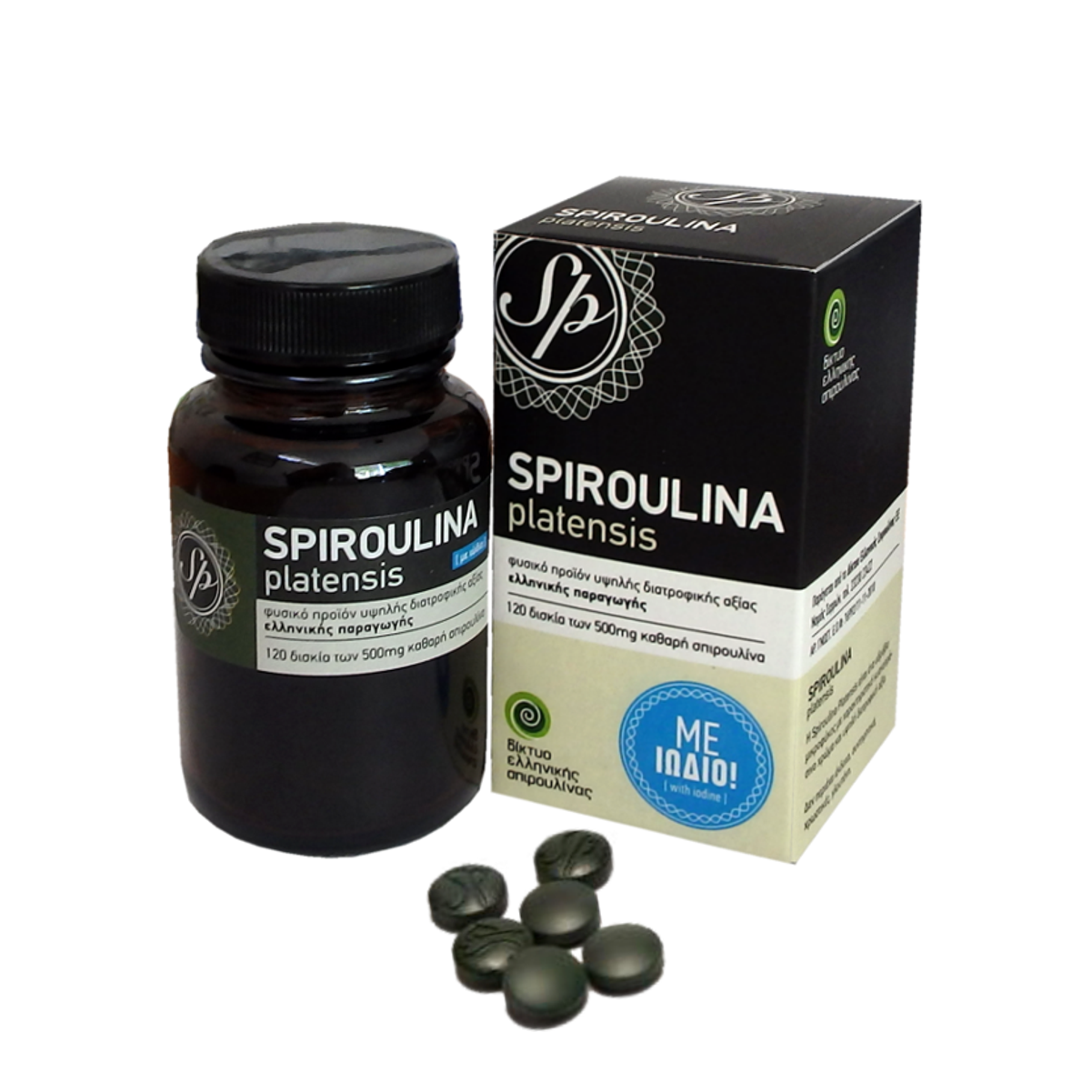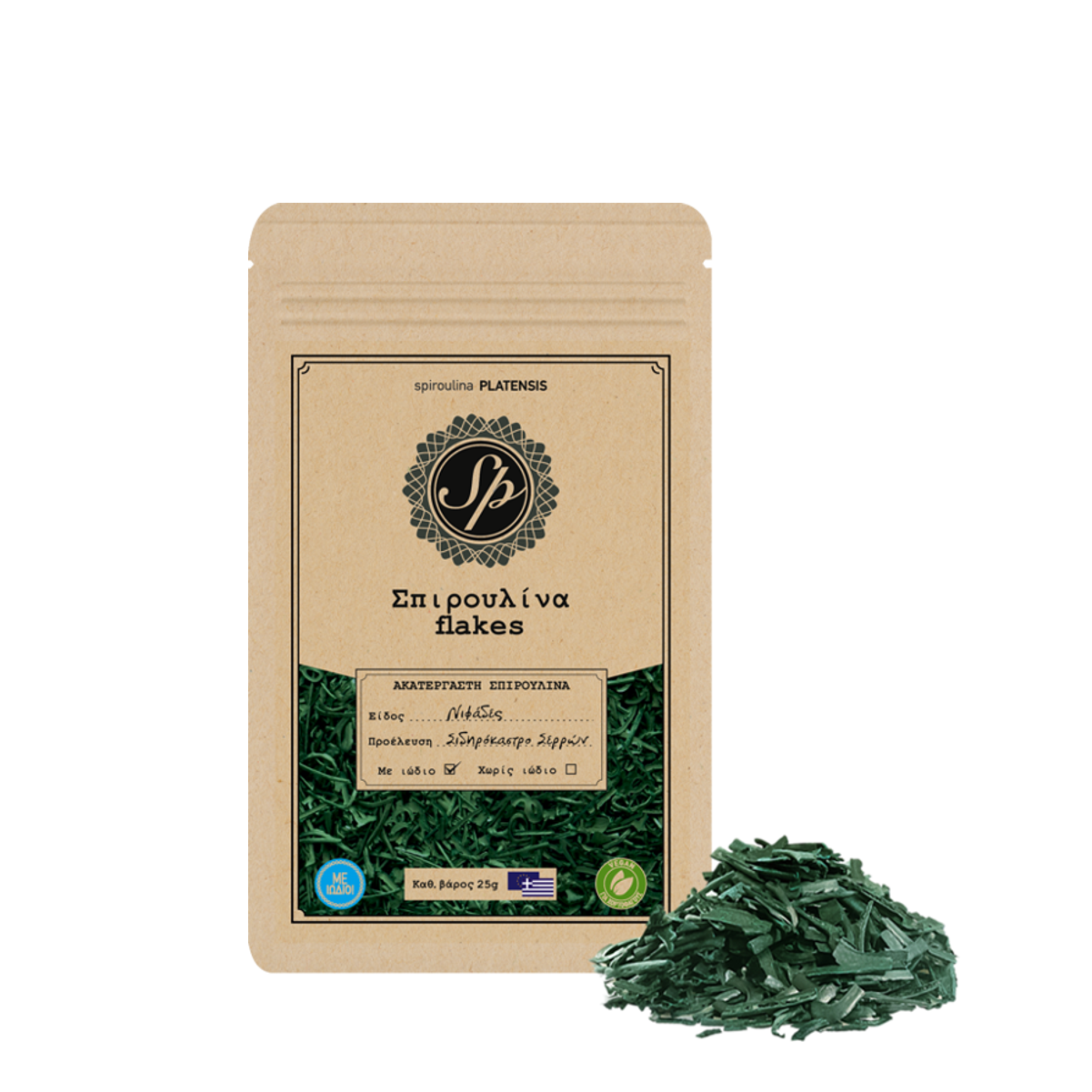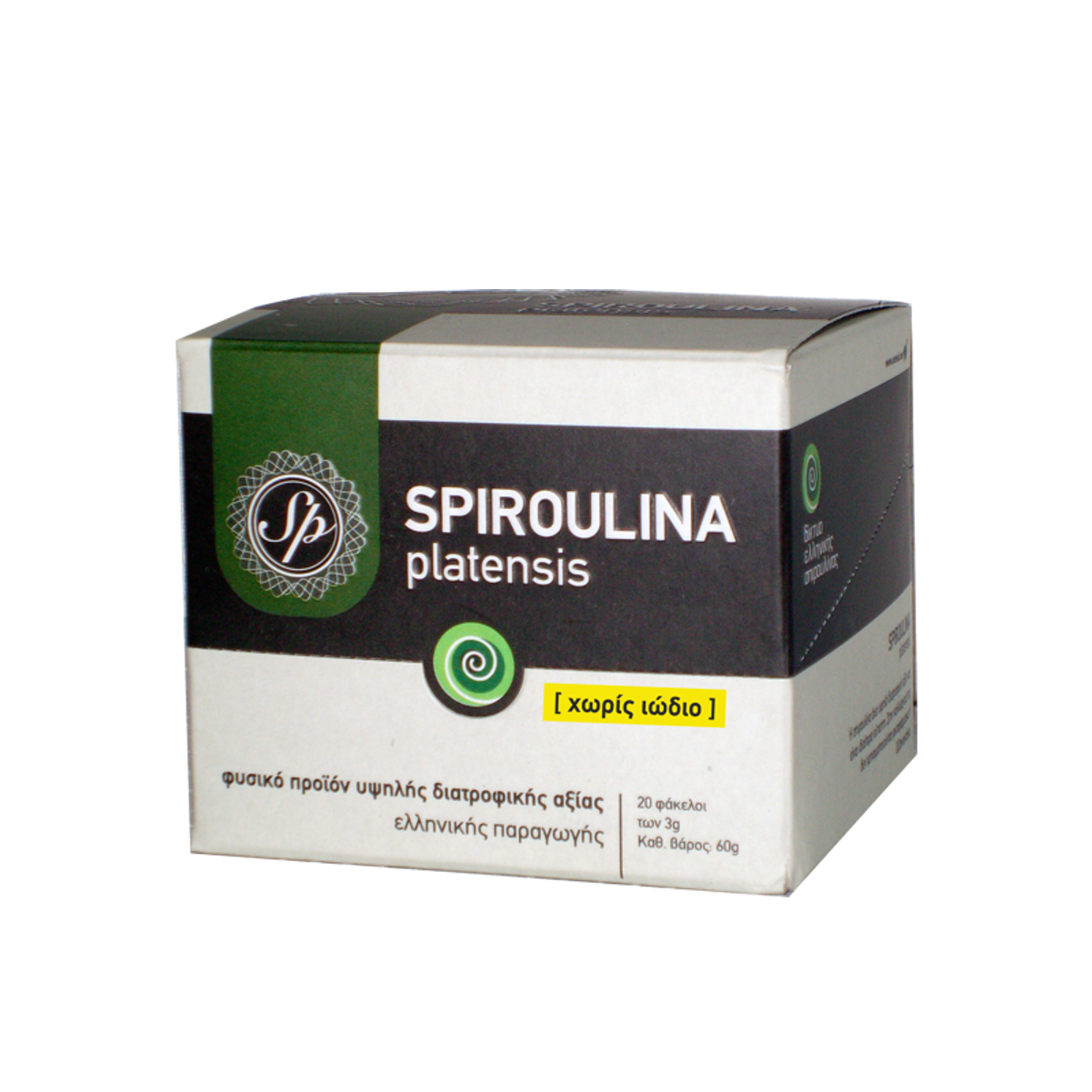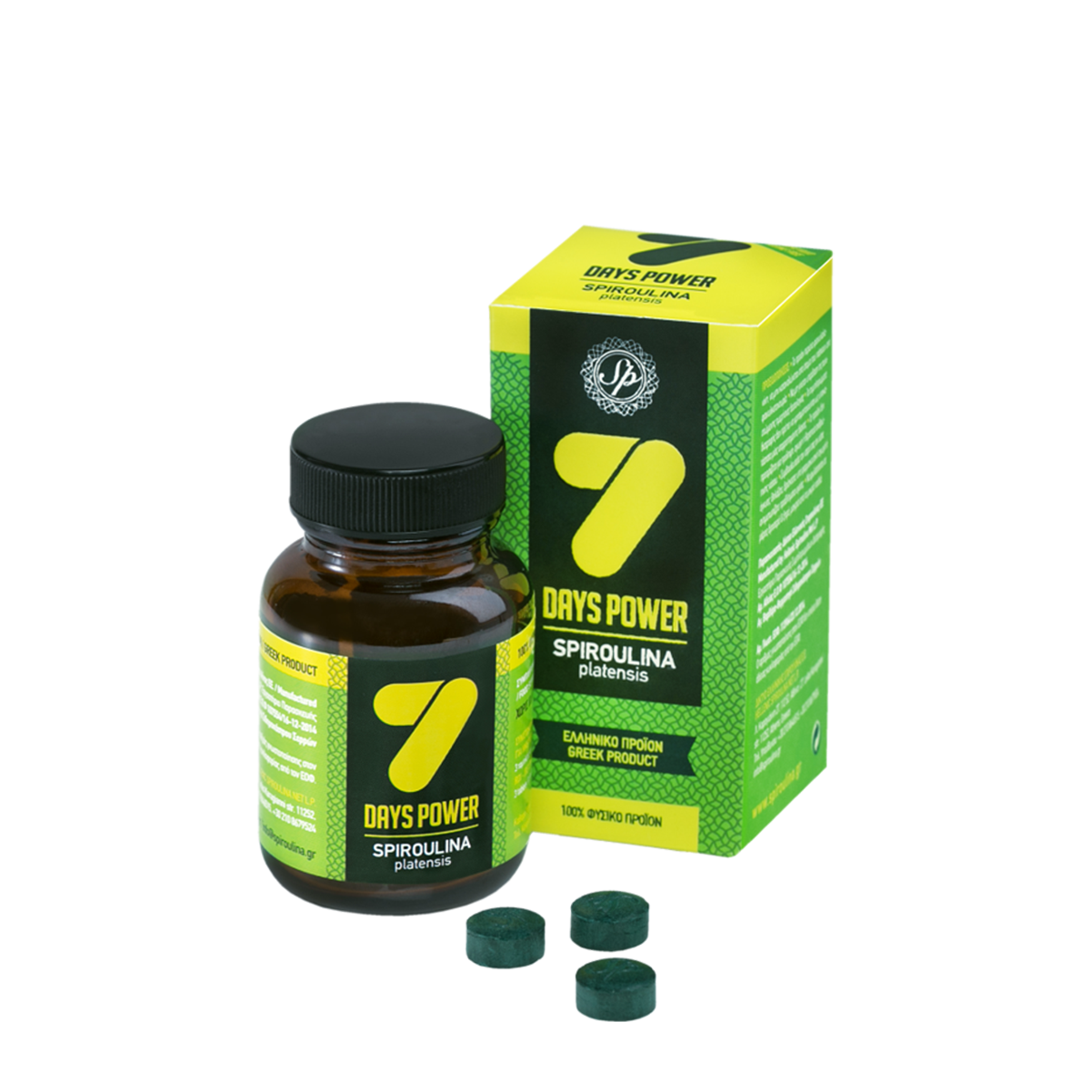Spiroulina PLATENSIS consists of metals and trace elements such as iron with high bioavailability, magnesium, calcium, sodium, potassium etc.
What are metals and trace elements?
Metals and trace elements are inorganic compounds that have the same reactivity as vitamins in the chemical reactions that take place in the organism..
Their basic functions are:
- Maintaining the body fluid balance
- Controlling the digestion process
- Controlling skeleton strength
- Controlling gland function
- Controlling vitamin absorption
Their absence can cause serious defects in the organism.
What metals and trace elements does Spiroulina PLATENSIS consist?
Among other metals and trace elements, Spiroulina PLATENSIS consists of:
Iron
- Is a substance of haemoglobin, which is a protein responsible for oxygen transport to the tissues
- Iron is essential in the bone marrow as it is used for the production of new red blood cells
Calcium
- Has a supporting role in bones and teeth
- Is essential in cell structure, blood clotting, muscle contraction, neuron transmission, enzyme activation and hormone production
Magnesium
- Contributes in metabolism, muscle contraction and tissue growth
- Activates enzymes and participates in protein and nucleic acid synthesis
Potassium
- Contributes in the proper function of the cells, tissues and organs of the human organism
- Regulates the neuron system, muscle contraction and balance of the osmotic pressure of the organism
- Important for heart function
- Necessary for insulin release, carbohydrate metabolism and protein synthesis
Sodium
- Is important for the balance of the body fluids and neuron transmission
- Preserves the ion balance in the blood
- Control the osmotic pressure of the organism and the transport of important substances among the cells
- Associated with muscle contraction and function of the muscular system
In the following tables the metals and trace elements that Spirulina consists are displayed:
Metals & Trace Elements
| Per 100 g | Per 3 g | Recommended daily intake (per adult) | |
| Calcium (Ca) (mg) | 1028.3 | 30.85 (4%*) | 800mg |
| Iron (Fe) (mg) | 50.4 | 1.51 (11%*) | 14mg |
| Phosphorus (P) (mg) | 1374.8 | 41.24 (6%*) | 800mg |
| Iodine (I) (μg) | 22 | 0.66 (0.4%*) | 150μg |
| Magnesium (Mg) (g) | 598.8 | 17.96 (5%*) | 300mg |
| Zinc (Zn) (mg) | 6.5 | 0.195 (2%*) | 15mg |
| Selenium (Se) (μg) | 59 | 1.77 (3%*) | 65μg |
| Copper (Cu) (μg) | 810 | 24.3 (2.5%*) | 1,2mg |
| Manganese (Mn) (g) | 5.3 | 0.16 (8%*) | 4,6mg |
| Chromium (Cr) (μg) | 110 | 3.3 (8%*) | 25μg |
| Potassium (K) (g) | 1558 | 46.75 (2.5%*) | 3,1g |
| Boron (B) (μg) | 1190 | 35.70 | |
| Cobalt (Co) (μg) | 35 | 22.68 | |
| Sodium (Na) (mg) | 756 | 22.68 | 3-4g |
* Recommended daily intake
In the following diagrams you can see the consistency of iron, calcium & magnesium in spirulina in contrast with other food
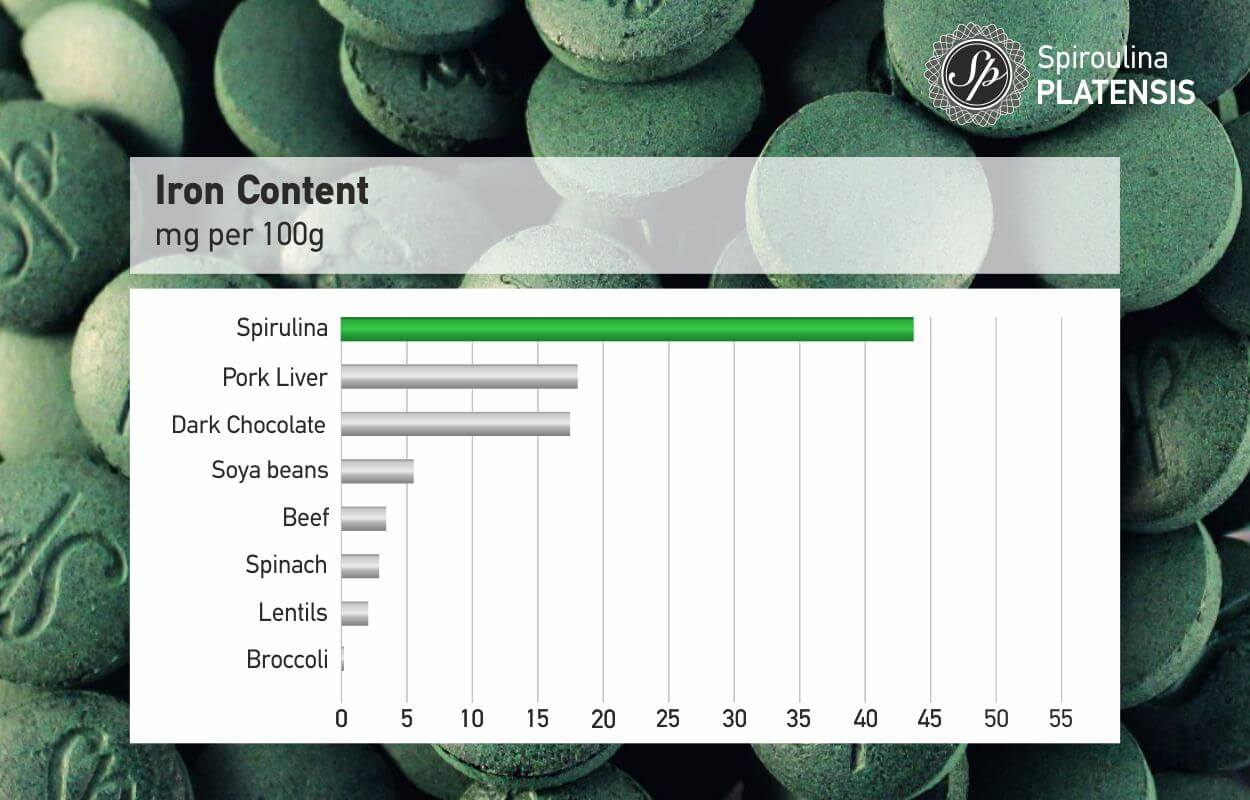
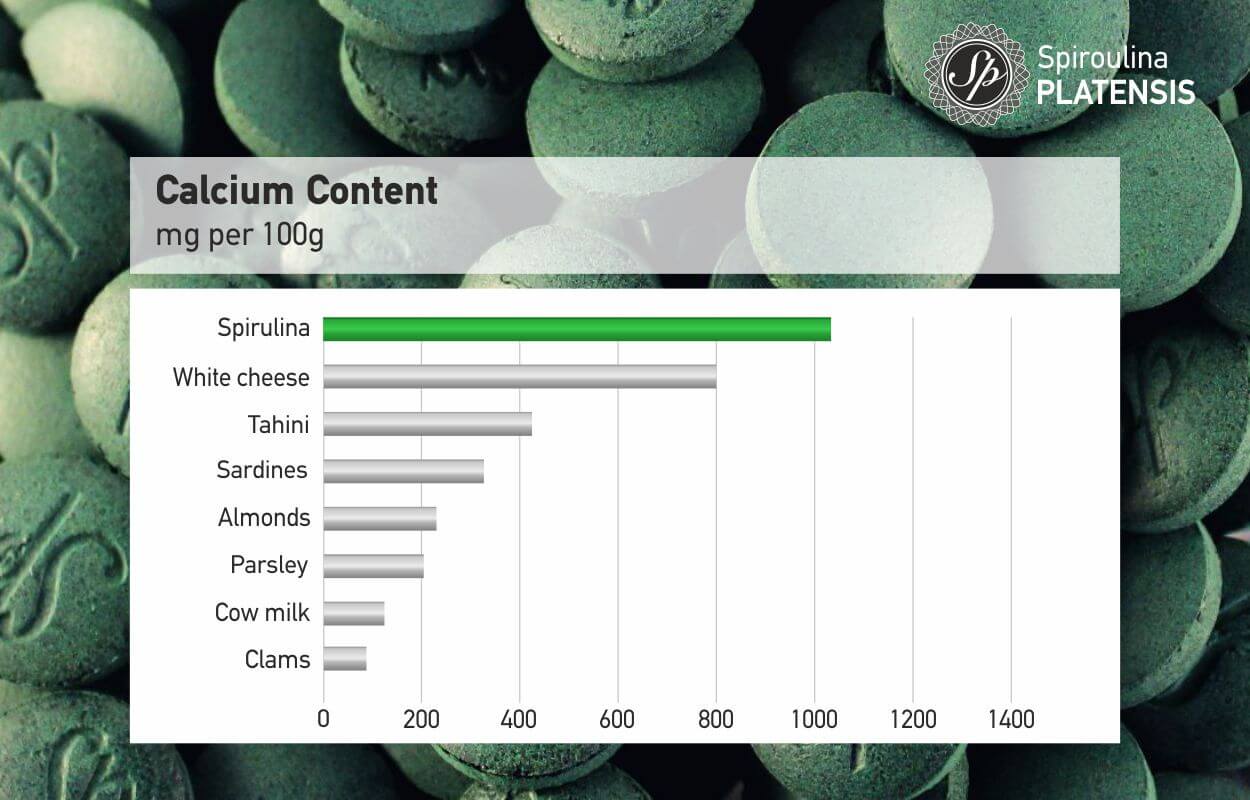

 FREE SHIPPING COSTS
FREE SHIPPING COSTS



